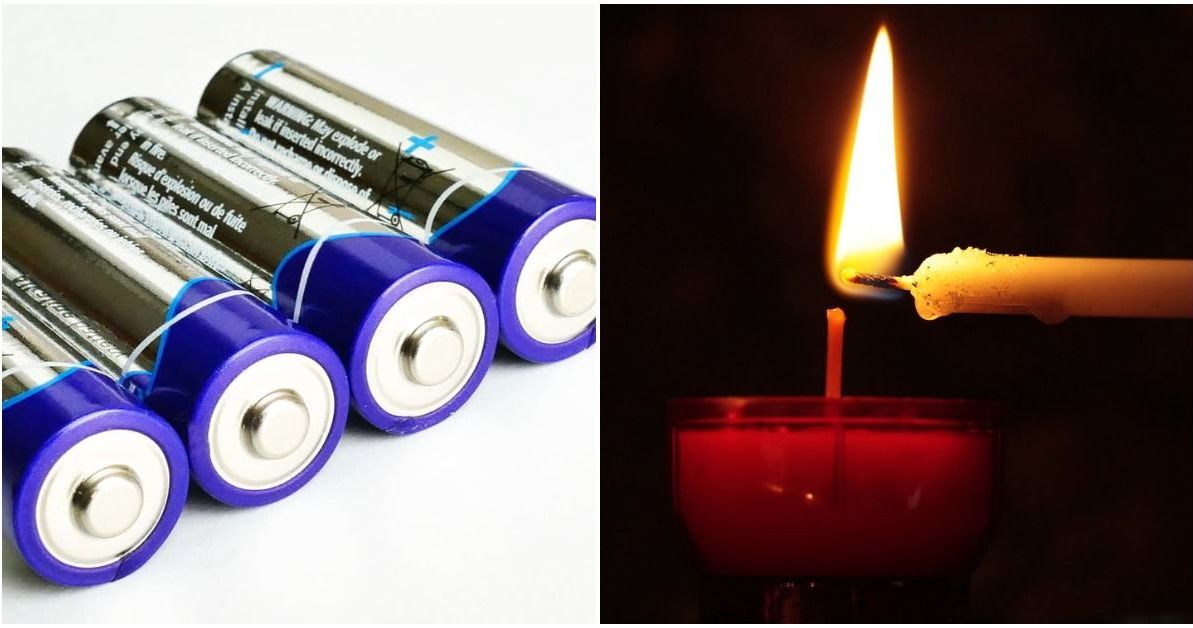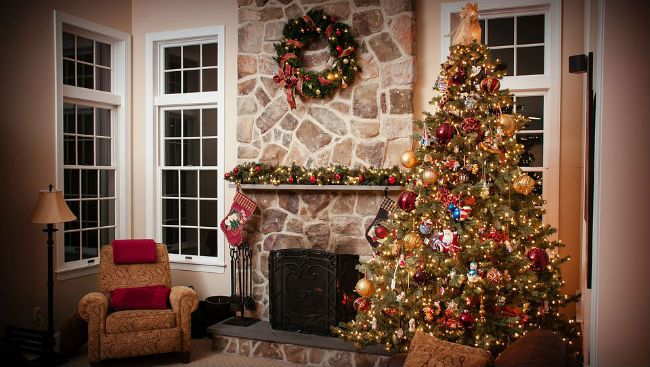Fire safety is one of those things that you can never be too careful about.
While it can seem paranoid to make emergency plans, check your smoke alarms, and invest in a fire extinguisher, the alternative is to lose your home (and maybe your life) when a fire breaks out.
Most people only do the bare minimum to protect their family - buying a smoke alarm and checking the batteries once a year.
But if you're really serious about fire safety, be aware of these 11 fire hazards found in almost every home in America.
1. Space Heaters
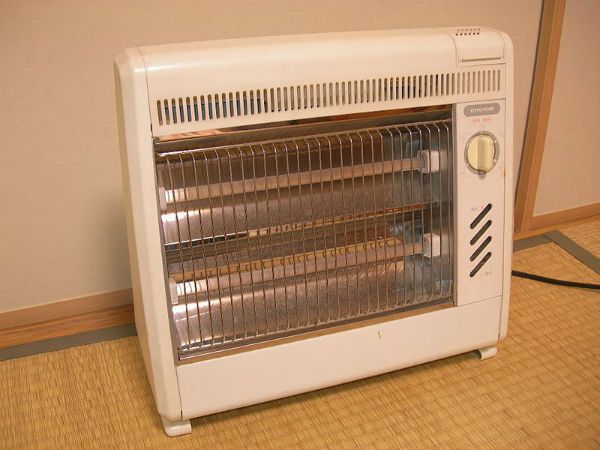
You may be surprised to learn just how many household fires are started by these heating devices.
The Red Cross says that household heating equipment, including space heaters and radiators, are to blame for one in every six house fires, and cause a spike in fires and deaths each winter.
People simple underestimate how hot these devices are, and how easily they can burn household goods like sheets, rugs, and loose papers.
Keep your space heaters on an inflammable surface, like tile, and make sure they stay at least three feet from anything that might catch fire.
It's also important to never leave heaters plugged in when you're asleep, in another room, or away from home.
2. Glassware And Glass Ornaments
This video from the London Fire Brigade demonstrates how glass objects can cause fires:
You probably didn't consider your glass vase or crystal decoration might cause a fire when you bought it, but the risk is very real.
Like a magnifying glass, concentrated light reflected off these surfaces can set nearby objects on fire.
The danger is small, compared to other items on this list, but it's serious enough that fire departments are now warning about the risks of glass objects.
Just be smart about where you place any glass, keeping them out of direct sunlight and away from windows.
3. Exposed Light Bulbs
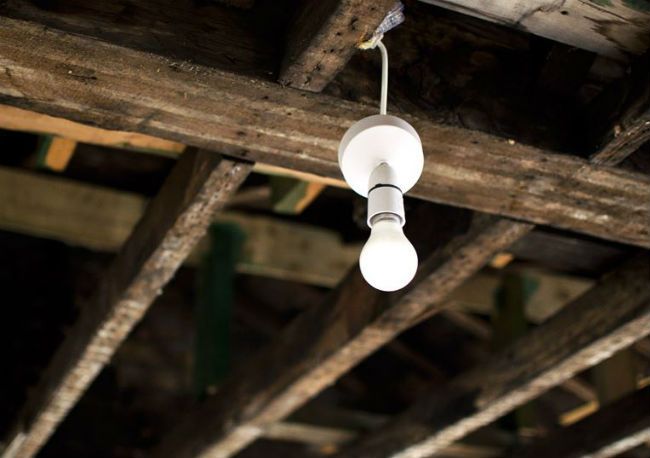
According to the Albany Fire Department, a surprising 12% of household fires begin in closets and cupboards.
Of course, the piles of towels, sheets, and flammable cleaning supplies in these spaces explains part of the risk.
But the fire department points the finger at exposed light bulbs, which are common in these small spaces.
Light bulbs, especially the old fashioned kind, get very hot after they've been left burning for hours.
But reducing your risk of a fire caused by these bulbs is as simple as buying a cover for the light, or switching to energy-efficient bulbs, which run cooler and are less dangerous.
4. Holiday Lights
It may not be the season for holiday cheer and decorations just yet, but it's never too early to warn about fire safety.
Disasters and deaths related to electrical fires always spike at Christmas, so don't let your family become another statistic.
The biggest risk is your Christmas tree, which is highly flammable but often wrapped in hot electrical lights.
If no one is awake or around to admire the tree, make sure any lights are turned off. And do the same for any other electric holiday decorations.
5. A Dirty Stove
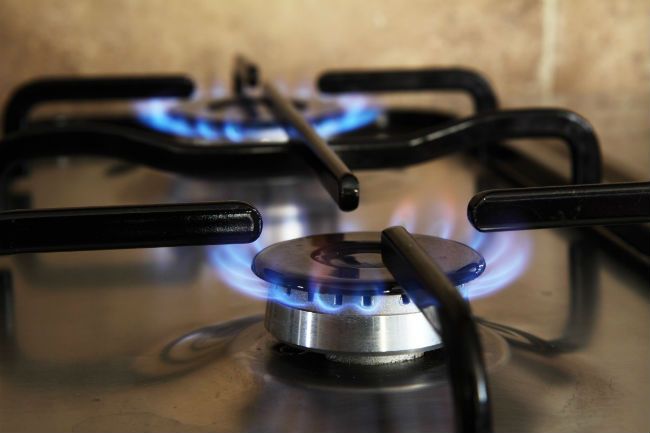
Even if your appliances are in good working condition, letting your cleaning routine slip can put your home in danger.
The grime that builds up on and under your stove top is often greasy,and prone to catching fire. That's just another reason to never leave the kitchen when you're cooking with the stove.
Keep your cooktop clean and there's not much fire risk, but you should still keep a close eye on any meal you're preparing!
6. A Chimney
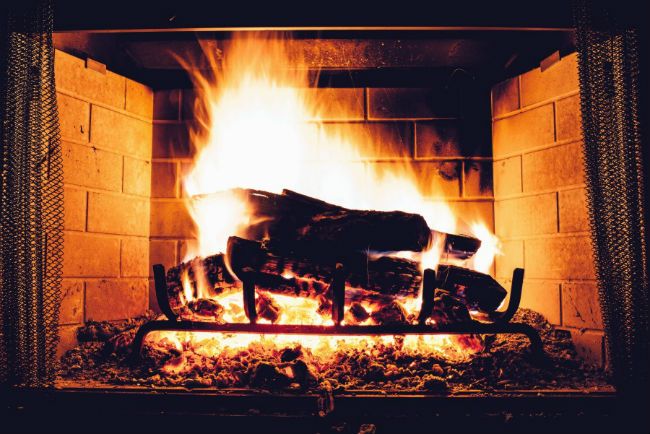
Having a real wood-burning fireplace and chimney is a luxury, but it could become a fire hazard if you're not careful.
Over time, even a rarely-used chimney becomes clogged with soot. This material can cause smoke to back up into your home, but it's also flammable.
To prevent a dangerous buildup, you should hire a professional to inspect or clean your chimney once a year.
Also: invest in a protective grill for the fireplace, not only to keep young children from touching the fireplace, but also to keep stray embers from floating into the room.
And, of course, never keep your fireplace lit unless someone is in the room.
7. Dust
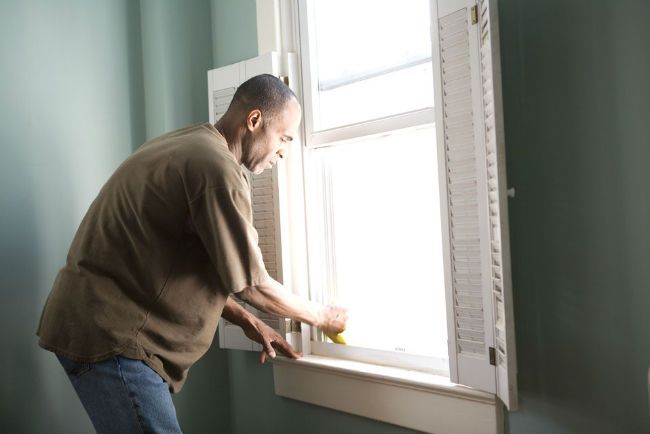
This is one fire risk most people are completely unaware of, but firefighters say it's a serious concern.
Lingering dust near electrical outlets, power bars, and appliances like space heaters can catch fire very quickly.
The space behind your TV, with many criss-crossing wires and outlets, has he greatest risk of a dust-related fire.
Obviously, a good sweep now and then should keep your home safe. Just take extra care to clean the dust around any electrical sources or devices.
8. Loose Batteries
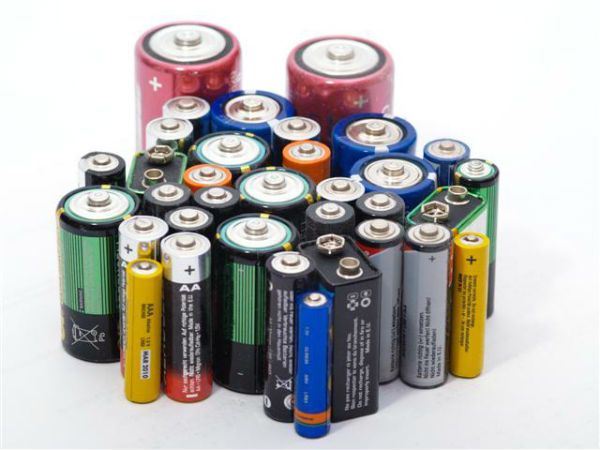
Where does your family keep loose batteries?
You probably answered a drawer in your kitchen, maybe next to some flammable tea towels or serviettes?
Well, while they may be small, these batteries are a big fire risk, and should be stored with care.
They should be kept far from any heat sources (so not over the stove) and once the packaging has been opened, the ports on both ends of the batteries should be covered with tape, to prevent them from sparking.
9. Dryers
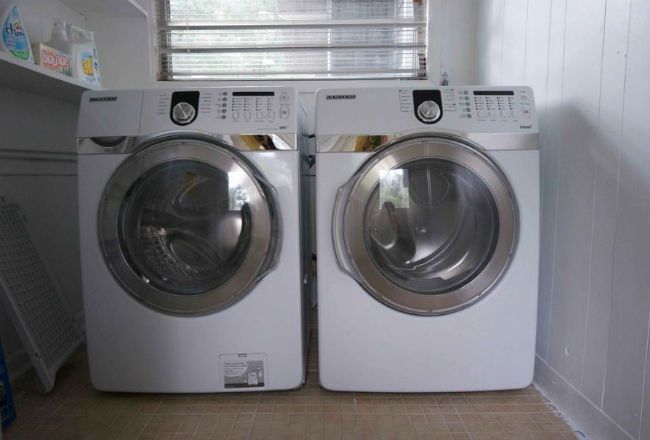
You should already know to clean out your dryer's lint vent often. A buildup of dust bunnies in this compartment is a common cause of house fires.
But the appliance's compartment in the back, with the electrical system, should also be checked for stray dust.
And also be sure to check for a testing label from your manufacturer on the back of the machine.
If you don't have one, or the label is out of date, it's probably time to replace your dryer, or at least get it checked by a professional.
10. Candles

A shocking 4% of house fires in the America are caused by candles, and those numbers come directly from the National Candle Association.
Candles are not inherently dangerous, but the careless ways people treat these decorations are.
The fact is, you should never leave a candle burning unattended, not even while you spend a few minutes in the next room.
Also, be sure to keep them in a sturdy candle holder or stand that's the right size, and keep them at least a foot away from anything flammable.
11. Smoke Detectors
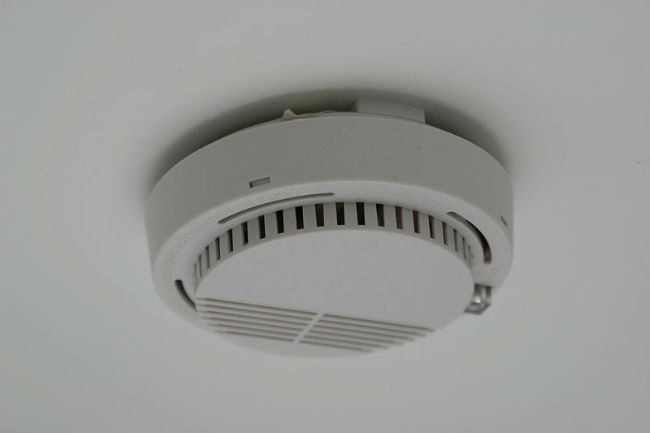
Yes, even the smoke detectors designed to protect your family from fires can become a hazard when they're not serviced properly.
A smoke alarm is your family's last line of defense during a fire, so take them seriously and give yours the care they deserve.
Your alarms should actually be checked at least once a month, with the batteries changed twice a year.
And check if your alarm needs to be swapped out for a new one. They should be replaced once a decade, or sooner depending on the expiry date.
Finally, be sure to have at least one alarm on every level of your home, and keep one outside of any sleeping areas.
